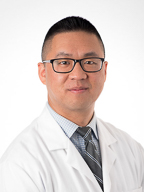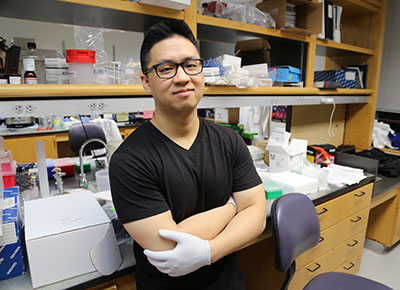Schedules
Nightfloat
Rosters
Full Contact Information
- Residents & Fellows
- Service Call Pagers
- Nightfloat
- Visiting Residents
Conferences
Clinical Rotation Resources
Education
Mentorship
- Faculty & Peer Mentorship Programs
Academic Resources
- ABSITE
- Scientific Writing Core
- UCSF Video Atlas of General Surgery
- Robotic Surgery Training Program
- Service Trajectory Podcasts
Administrative Resources
- Insurance & Benefits
- CA Medical Licensure Process
Assessment
- Resident Assessment/Evaluation
Program Communication
- General Surgery Monthly Newsletter
- Digital Suggestion Box
Policies
Policies
- Program Policies & Procedures
- EmergenTree
- When to Notify An Attending
- General Surgery Operative Log Guidelines
Nightfloat
- Moonlighter Responsibilities
- Moonlighter FAQ
- Jeopardy Policy & Guidelines
Forms
- Resident Reimbursements
- Resident Address/Info Change Form
- Resident Travel Requests
- Donor Run Form
Service Competencies
- Common Goals & Objectives
- GME Competencies
Family Planning
- Parenting in Surgery
Leadership / About Us
Leadership
- Faculty Leadership
Administration
- Education Office Staff
Program Committees
- Program Committees (All)
- Clinical Competency Committee
- Professional Development Committee
- Surgical Education Committee
- Program Evaluation Committee
News & Events
- News
Residents & Fellows
Resident Photo Rosters
- General Surgery Residents
- Plastic Surgery Residents
- Vascular Surgery (Integrated) Residents
- All Surgery Interns
Clinical Fellowships
- Clinical Fellows
Full Contact Information
- Residents & Fellows
Alumni
- Graduate Placement
- Naffziger Surgical Society
Resident Research Fellows »
Simon N. Chu, M.D., M.S.

Biography
Simon N. Chu MD, MS is a General Surgery Resident in the UCSF Department of Surgery. He attended his undergraduate and graduate studies at the University of California, Berkeley in the fields of Public Health and Health and Medical Sciences. He completed his medical degree at UCSF in the UC Berkeley-UCSF Joint Medical Program and Program in Medicine for the Urban Underserved and was inducted into the Alpha Omega Alpha society. During his graduate and medical training, he conducted basic science research in virology and immunology, completing a Master's Degree and Howard Hughes Medical Institute Fellowship. He is currently a resident research fellow in the Mackenzie lab studying maternal-fetal tolerance in patients with alpha-thalassemia major who underwent an in-utero stem cell transplant. He is also participating in investigations of novel gene therapies to treat congenital diseases before birth using various genome editing strategies.Specifically, his current work investigates whether the fetal immune system is responsive against maternal alloantigens after a maternal in utero stem cell transplant. Using an in vitro mixed lymphocyte reaction, proliferative responses in CD4+ and CD8+ fetal T cells are measured after exposure to maternal antigen-presenting cells. In addition to examining alloreactive responses, he is also pursuing high-throughput single cell sequencing to explore the T-cell receptor repertoire in the developing fetal immune system after IUSCT.
Education & Training
Institution
Degree
Dept or School
End Date
Research Overview
Before his acceptance in the General Surgery Residency Program, Dr. Chu was a medical research fellow in the Transplantation Research Laboratory, co-mentored by Dr. Qizhi Tang and Dr. Peter Stock in the Department of Surgery. He received his B.A. in Public Health at the University of California, Berkeley and his M.S. in Health and Medical Sciences through the UC Berkeley-UCSF Joint Medical Program. Simon is also a member of the PRIME Program in Medicine for the Urban Underserved at UCSF. His longstanding interest in the human immune system has lead him to numerous research investigations.
In the laboratory of Dr. Warner Greene, he identified two unique proteins in seminal fluid that contributed to the enhancement of HIV infection and served as potential new drug targets in the creation of multi-combinational antiviral microbicides. In his graduate studies in the laboratory of Dr. Joseph "Mike" McCune, he characterized the role and mechanisms by which gut-resident commensal bacterial species can inhibit inflammatory pathways in the gut, which has been associated with HIV disease progression. He is currently pursuing the Doctor of Medicine degree at UCSF.

Currently, Simon N. Chu is a Howard Hughes Medical Institute Fellow pursuing investigations into the immunological basis of enhanced transplant rejection in HIV-positive solid organ transplant recipients. In a large multi-site clinical trial of liver and kidney transplants in people living with HIV, recipients were found to have a 2 to 3 fold higher rate of rejection compared to age-matched individuals without the virus. This observation was unexpected and counterintuitive, given that such individuals are virally immunosuppressed. In order to make transplantation a safer and more efficacious option for people living with HIV who develop end-stage organ failure, he aims to identify pre-transplant immunological correlates of rejection in this patient population. By utilizing high-dimensional flow cytometric and multiplex gene expression analysis, he is seeking to identify novel biomarkers associated with the development of acute cellular rejection. In the era of precision medicine, these results may help transplant clinicians and surgeons identify at-risk patients and allow for individualized tailoring and targeted escalation of immunosuppression. Lastly, these studies will serve as a catalyst towards identifying new immunologic mechanisms responsible for this paradoxical enhanced rejection.
In addition to his basic science immunology research, Chu also conducts multidisciplinary research in translational biomedical device development and surgical education. He is the Clinical Lead of the Tabla Research Team for the laboratory of Shuvo Roy PhD, in the Department of Bioengineering. Utilizing a low-cost, non-invasive acoustic diagnostic device, he directs two clinical studies to characterize fluid accumulation during respiratory illnesses such as pneumonia and heart failure exacerbation. Combining audio processing methods and machine learning algorithms, this work aims to assist clinicians in the rapid and accurate diagnosis of lung disease.
Furthermore, in the research group of Patricia O'Sullivan, his research in surgical education aims to better understand the unique and challenging teaching environment of robotic surgery. Through qualitative analysis of the complex instructional behaviors and interactions between attending surgeons and residents, his efforts are guiding the development of a structured, evidence-based robotic surgery curriculum for surgical trainees.
Chu's research has an excellent track record of public and private funding, with publication in respected peer-reviewed journals. His work has been presented and recognized nationally and internationally. In 2018, he was awarded the School of Medicine Dean's Prize for Research and Scholarship in Molecular Medicine for the second time.
Publications
MOST RECENT PUBLICATIONS FROM A TOTAL OF 10
Data provided by UCSF Profiles, powered by CTSI
- Folick A, Cheng C, Chu SN, Rick JW, Rushakoff RJ. Discordant Timing of Hypoglycemic Agent Screening Causing Delayed Diagnosis of Sulfonylurea-Induced Hypoglycemia. AACE Clin Case Rep. 2022 May-Jun; 8(3):139-141. View in PubMed
- Henrich TJ, Schreiner C, Cameron C, Hogan LE, Richardson B, Rutishauser RL, Deitchman AN, Chu S, Rogers R, Thanh C, Gibson EA, Zarinsefat A, Bakkour S, Aweeka F, Busch MP, Liegler T, Baker C, Milush J, Deeks SG, Stock PG. Everolimus, an mTORC1/2 inhibitor, in ART-suppressed individuals who received solid organ transplantation: A prospective study. Am J Transplant. 2021 05; 21(5):1765-1779. View in PubMed
- Green CA, Chu SN, Huang E, Chern H, O'Sullivan P. Teaching in the robotic environment: Use of alternative approaches to guide operative instruction. Am J Surg. 2020 01; 219(1):191-196. View in PubMed
- Rao A, Chu S, Batlivala N, Zetumer S, Roy S. Improved Detection of Lung Fluid With Standardized Acoustic Stimulation of the Chest. IEEE J Transl Eng Health Med. 2018; 6:3200107. View in PubMed
- Vujkovic-Cvijin I, Swainson LA, Chu SN, Ortiz AM, Santee CA, Petriello A, Dunham RM, Fadrosh DW, Lin DL, Faruqi AA, Huang Y, Apetrei C, Pandrea I, Hecht FM, Pilcher CD, Klatt NR, Brenchley JM, Lynch SV, McCune JM. Gut-Resident Lactobacillus Abundance Associates with IDO1 Inhibition and Th17 Dynamics in SIV-Infected Macaques. Cell Rep. 2015 Nov 24; 13(8):1589-97. View in PubMed
- View All Publications